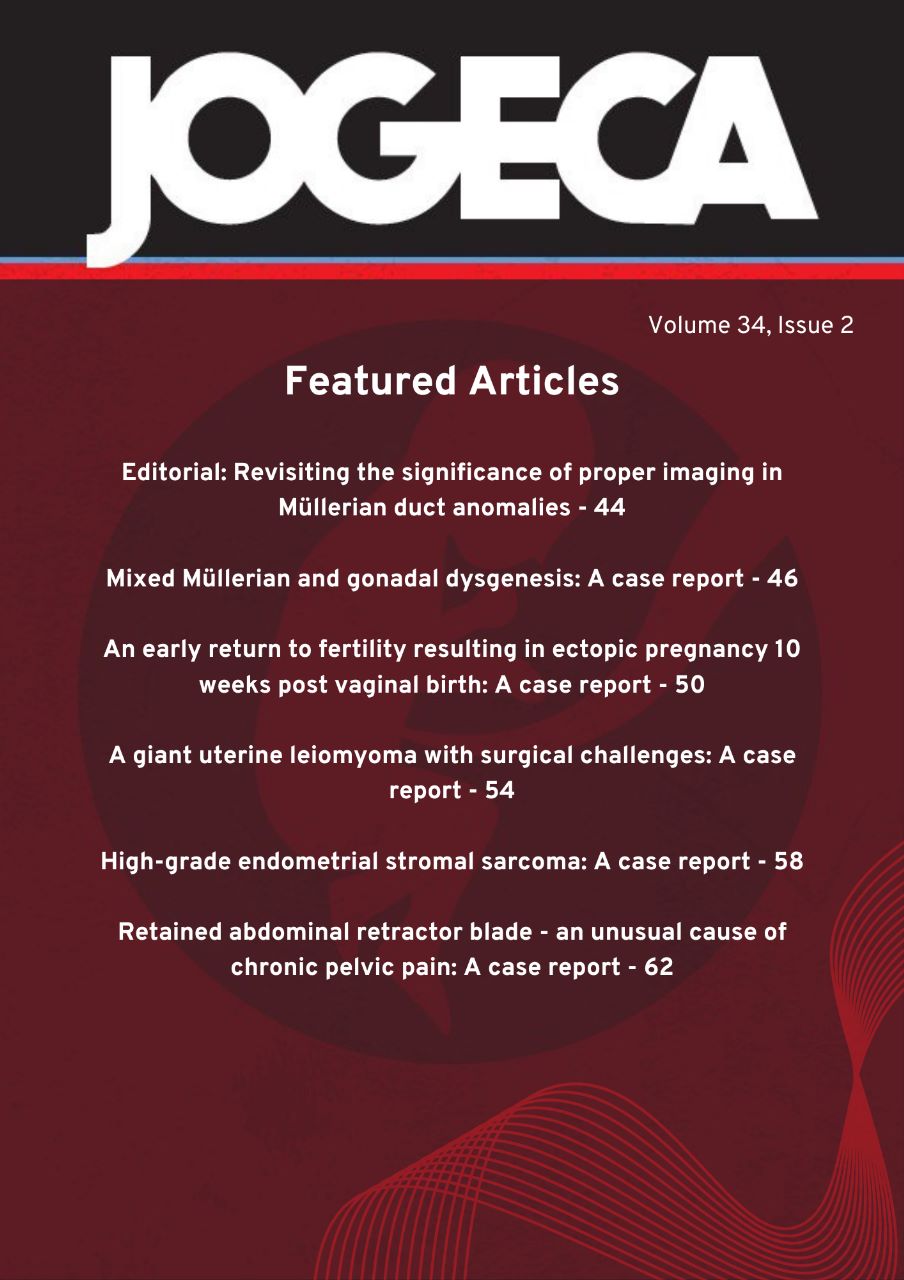Perceptions of self as influencers of sexual debut among in- school adolescents in Nyamira County, Kenya
DOI:
https://doi.org/10.59692/jogeca.v33i2.437Keywords:
Adolescent, self-perception, sex, debut, in-school, self-esteemAbstract
Background: Self-esteem, defined as a person's perception of their worthiness, is a social vaccine that possibly inoculates young people against a wide range of social vulnerabilities. Young people with high esteem exhibit self-confidence to decline sex when not ready for it. In this regard, high self-esteem may be protective against teenage sexual debut.
Objective: To determine perceptions of self as guided by social constructs that could lead to sexual debut among in-school adolescents in Nyamira County through the lens of the theory of reasoned action.
Methods: A mixed-method study design employing the collection of both quantitative and qualitative data was used. The study was conducted in mixed-day, girls-only boarding, and boys-only boarding secondary schools in Nyamira County. Four hundred students (200 males and 200 females) from mixed-day secondary schools and single-sex boarding secondary schools aged 14-18 were recruited and included in this study. Focused Group Discussions (FGDs), case narratives, and key informant interviews were utilized in collecting qualitative data.
Results: Of the 400 students, 61 had ever had sex. % Of the males, 66.5 and the females, 55.5 had ever had sex. % % More students in mixed day schools (63.5 ) had ever % had sex than single-sex schools (58.5 ). Most % students (75.3 ) had normal self esteem. Students' % level of self-esteem did not vary between the mixed- day secondary schools and the single-sex secondary schools. No association was found between perceptions of self and ever having sex among in-school adolescents, regardless of the school type (day or boarding) and gender of the students. In FGDs and case narratives, students pointed that one's mental status played a role in initiating sex.
Conclusion: Esteem boosters are unlikely to curtail sexual debut among in-school adolescents in Nyamira county. Other drivers of sexual debut need to be investigated to address the impact of sexual debut among the in-school adolescents in the county.
Downloads
Published
How to Cite
Issue
Section
Categories
License
Copyright (c) 2021 The Authors.

This work is licensed under a Creative Commons Attribution 4.0 International License.




